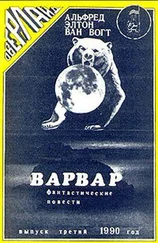Oh! first smile of the yellow race.
Everything is hard inside me and arid, but that smile of hers, so sweet, seemed to be the mirror of myself.
When I went back, I sought, I looked, I stopped. No one: at last, at the moment when the train whistled and was leaving, someone ran quickly with a light step to my window, breathless, came to smile, to smile for the last time, to smile sadly. So she too remembered. Why did I not go back? Was not my destiny there?

A people’s dress tells one a great deal more about them than their poetry. Which may come from elsewhere and take everybody in like that of Japan.
Dress is a conception of oneself, worn by oneself.
Who would dream of wearing something that was contrary to himself and that contradicted him constantly?
The Japanese woman is difficult to dress, but there is no necessity for her to compress her breasts as she does, which are fine and well shaped, and to put a cushion on her back: nothing but a love of discipline . Japanese dress is extremely decorative, but esthetic.
In adopting a dress, a people sometimes makes a mistake as to what suits it, but rarely. It is not the color of the skin nor the shape of the body alone that guide the choice of clothing, but the soul, the expression. And general concepts.
The Balinese women quite frankly leave the breasts naked.
Mind you, this is not merely by chance; their legs are carefully covered down to the feet with very pretty stuffs that they dye themselves, and they could quite as easily be completely dressed. Besides, nudity is very difficult to wear; it is a technique of the soul. It is not enough to remove one’s clothing. One must remove one’s vileness. (I once saw some nudists in the neighborhood of Vienna. They took themselves for ‘nude people.’ But all I saw was some meat.)
The poetry of a people is more deceptive than its dress; it is manufactured by esthetes, who are bored and who are only understood among themselves.
Plays are more truthful (at least in the way they are produced), for the public would not go regularly to performances that bored them.
I have seen plays of the Chinese, Koreans, Malayans, Tamils, Bengalis, Hindus, Turks, modern Greeks, Annamites, Hungarians, Spanish, Serbians, etc.; films of the Chinese, Japanese, Bengalis, Hindus, and dances of the Javanese, Balinese, Hindus, Somalis, and of the South American Indians.
The subject is of no importance. Many of them are similar. Likewise, the history of races (everywhere similar) is of little importance. It is the manner, the style and not the facts that matter. A people about which one knows nothing and that has stolen everything from others — ideas, religion, institutions — has its own gestures , its accent , its physiognomy .. . its reflexes .
And each man has a face that betrays him, and his face, at the same time, betrays his race, his family and his religion. Everyone is responsible for his face.
No one wears it undeservedly.
Will there be another war? Look at yourselves, Europeans, look at yourselves.
Nothing is peaceful in your faces.
All is struggle, desire, avidity.
Even peace you want violently.
1 In French “papatrie,” untranslatable. (Translator’s note)
2 One day I saw an actor who was miming drunkenness. It was quite a while before I realized it. He had made up his part by taking from one drunkard this, from another that, from such a one the break-down of his speech, from another of his gestures, or his fumbling acts, or his lapses of memory; and so with these scraps he had made himself a harlequin’s costume for drunkenness that had no connection with any possible drunkard, no center, no truth, and had been constituted as if by a man who did not know what drunkenness was, and would be unable to picture it to his inner self. And yet that seems unbelievable in Japan, which is so full of drunkards. I must say it was amazing .
A BARBARIAN WITH THE MALAYS

Malays, Javanese of Sumatra, Balinese, Malay Sundanese of Borneo, of Flores, mixed with, married to a hundred insular races, to the Bataka, to the Dyaks, to the Chinese, to the Arabs, and even to the Papus, converted in turn to the religion of India (Hinduism and Buddhism), then to Mohammedanism — here is enough to trip up anyone who attempts to generalize at every step. It is annoying.
THE BARBARIAN IN MALAYA
The Malay has something wholesome, noble, clean and human about him.
The Chinese, the Hindu, all those original races compare unfavorably with him. Besides, originality is a defect, the outward sign of defects.
He is precise, neat. Many of them remind one of the Basques.
Unfortunately, I shall hardly get to know the Malays… There is not a thing I do not like about them. Not a form. Not a color. Their houses, their trains, their boats, their hotels and their clothes, everything pleases me. They have the same taste as mine for oblique forms (straight towers are pretentious looking and at the same time rather silly).
The houses, with their concave roofs, look like waves, their boats look as if they were sailing along the sky. The comma is the keynote of everything.
The Malay kriss , the only really beautiful weapon, nonchalant like its master, but also firm, easy to hold, and looking for trouble, seems made for blows at random on the body of a crowd.
The Malay hates an outburst. When he gets angry, it is really because he cannot bear things any longer, he is out of patience. Then his anger makes havoc and ends by his own death.
The Malays are the only people whose constructions please me. It would disgust me to own a house. Making an exception, at Johore, I inquired the cost of buying a house: two hundred francs. The whole effect modest, but pleasant; on piles, three rooms, some corridors, a penthouse, all in wood so light that it cannot weigh more than three hundred kilos.
Batik , the only dress material that does not hurt one’s eyes, that does not snatch one’s attention.
Therefore, the Malay, who is lazy like a well-bred man, has, even if he is poor, a charming house, though with nothing pretty about it.
In Malaya there are no ugly houses for the common people.
If you see an ugly one, a European or a Chinaman lives in it.
The Malay is kind, open-armed, full of humor, a great mocker.
In their plays, where combined decorative and stylized movements abound, they often throw in one or two odd pauses while they busy themselves doing a mime without words, extremely soberly, as though it were not intended for the public, and this is quite comical.
The behavior of the Javanese is so sympathetic, while that of the Balinese I found distinctly less so when I perceived that they are particularly anxious to be proper. The Malay likes propriety.
Batik is very proper. This had never occurred to me. Their style of hairdressing even more so.
The Balinese woman is dressed in a mere trifle, but this trifle, dark-colored (violet-brown) is completely proper in design.
Neither sober, nor pure, nor eloquent, but proper.
They all have deportment. Malays, Javanese, Balinese; their deportment does not suggest excessive dignity or pride, nor is it transcendental. It is deportment.
A Javanese dancer never seems ridiculous, exaggerated or naive, as those elsewhere are so apt to be, for the thing that most resembles the dance is grandiloquence.
A Javanese dress material can be offered to anyone, to no matter whom, anywhere in the world; it is always ‘in good taste.’
Читать дальше














